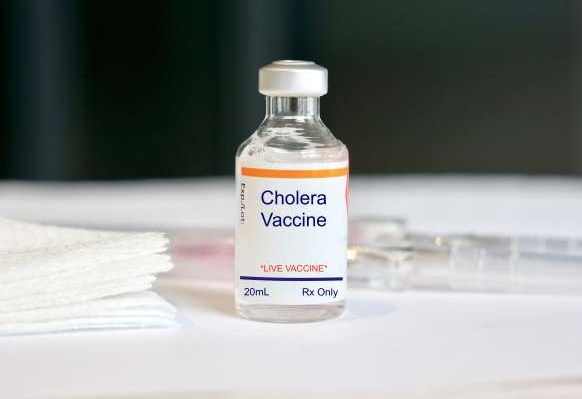
In response to a shortage of vaccines, the World Health Organisation (WHO) is recommending countries temporarily suspend administering two-dose treatments for cholera and opt for a single-dose shot instead.

The recommendation comes as several nations report unprecedented surges in cholera outbreaks. Nearly 29 countries across the world have recorded cholera cases since January this year. These include Haiti, Malawi, and Syria which are facing large outbreaks.
The WHO and its partners say the single-dose strategy will allow more people across the world to access the vaccines.
“This last-resort decision is a way to avoid making the impossible choice of sending doses to one country over another,” said Dr Daniela Garone, international medical coordinator at Doctors Without Borders, one of WHO’s partners in managing the global cholera vaccine stockpile. “Single dose vaccination will provide shorter protection, but it is the fair and equitable way to try and protect as many people as possible as we face simultaneous cholera outbreaks.”
The one-dose strategy has proven to be effective to respond to outbreaks, even though evidence on the exact duration of protection is limited, and protection appears to be much lower in children. With a two-dose regimen, when the second dose is administrated within 6 months of the first, immunity against infection lasts for 3 years.
The benefit of supplying one dose still outweighs no doses although the temporary interruption of the two-dose strategy will lead to a reduction and shortening of immunity, this decision will allow more people to be vaccinated and provide them protection in the short term.
The available data shows that the current supply of cholera vaccines is extremely limited. Its use for emergency response is coordinated by the International Coordinating Group on Vaccines (ICG) which manages the global stockpile of oral cholera vaccines. Out of the total 36 million doses projected to be produced in 2022, 24 million have already been shipped.
As vaccine manufacturers are producing at their maximum current capacity, there is no short-term solution to increase production. The temporary suspension of the two-dose strategy will allow the remaining doses to be redirected for any needs for the rest of the year.
Cholera often causes no or mild symptoms, but serious cases cause acute diarrhoea and can kill within hours if untreated.
The WHO say the outbreaks are putting “unprecedented pressure” on the world’s limited vaccine supply. Director-General Tedros Ghebreyesus says authorities should aim to scale up vaccine production and that “rationing must only be a temporary solution.”